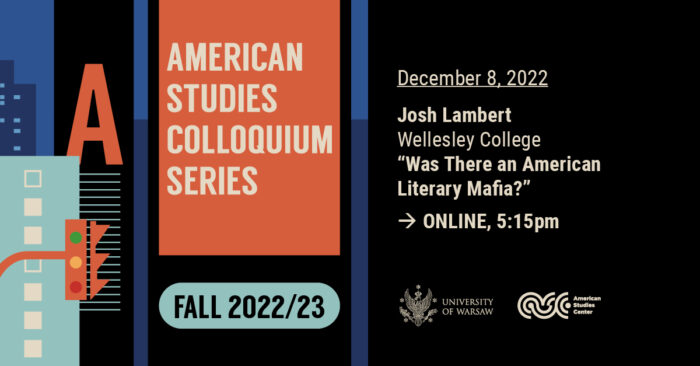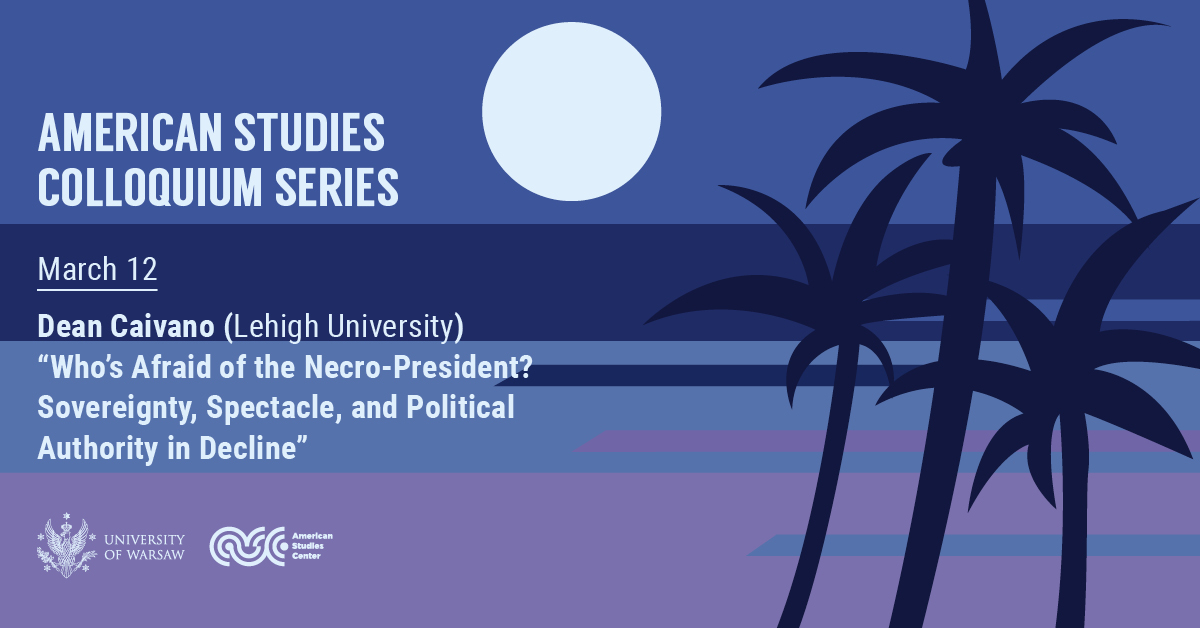We are delighted to invite you to the fourth talk of the Fall 2022/2023 semester of the American Studies Colloquium Series:
Josh Lambert
(Wellesley College)
Was There an American Literary Mafia?
This is an online event.
Thursday, December 8, 2022
at 5:15 pm
You can get 2 OZN points for participating in this event.
Check how to collect OZN points online here.

Where?
This lecture will be streamed online. To attend, click the button below or enter https://uw-edu-pl.zoom.us/j/96368905011 into your browser, and join the meeting.
What?
In the 1960s and 1970s, many American authors, Jewish and non-Jewish alike, complained about a “Jewish literary mafia.” While perniciously circulating antisemitic ideas, such claims also reflected the remarkable success of Jews in the U.S. publishing industry. How did Jews’ roles in publishing influence the development of American literature? How can attention to this story help to produce a more equitable industry now?
Who?
Josh Lambert is the Sophia Moses Robison Associate Professor of Jewish Studies and English, and director of the Jewish Studies Program, at Wellesley College. He’s the author and editor of several books about Jewish culture in the U.S., including The Literary Mafia: Jews, Publishing, and Postwar American Literature (2022). His reviews and essays have appeared recently in the New York Times Book Review, Jewish Currents, and Lilith.




